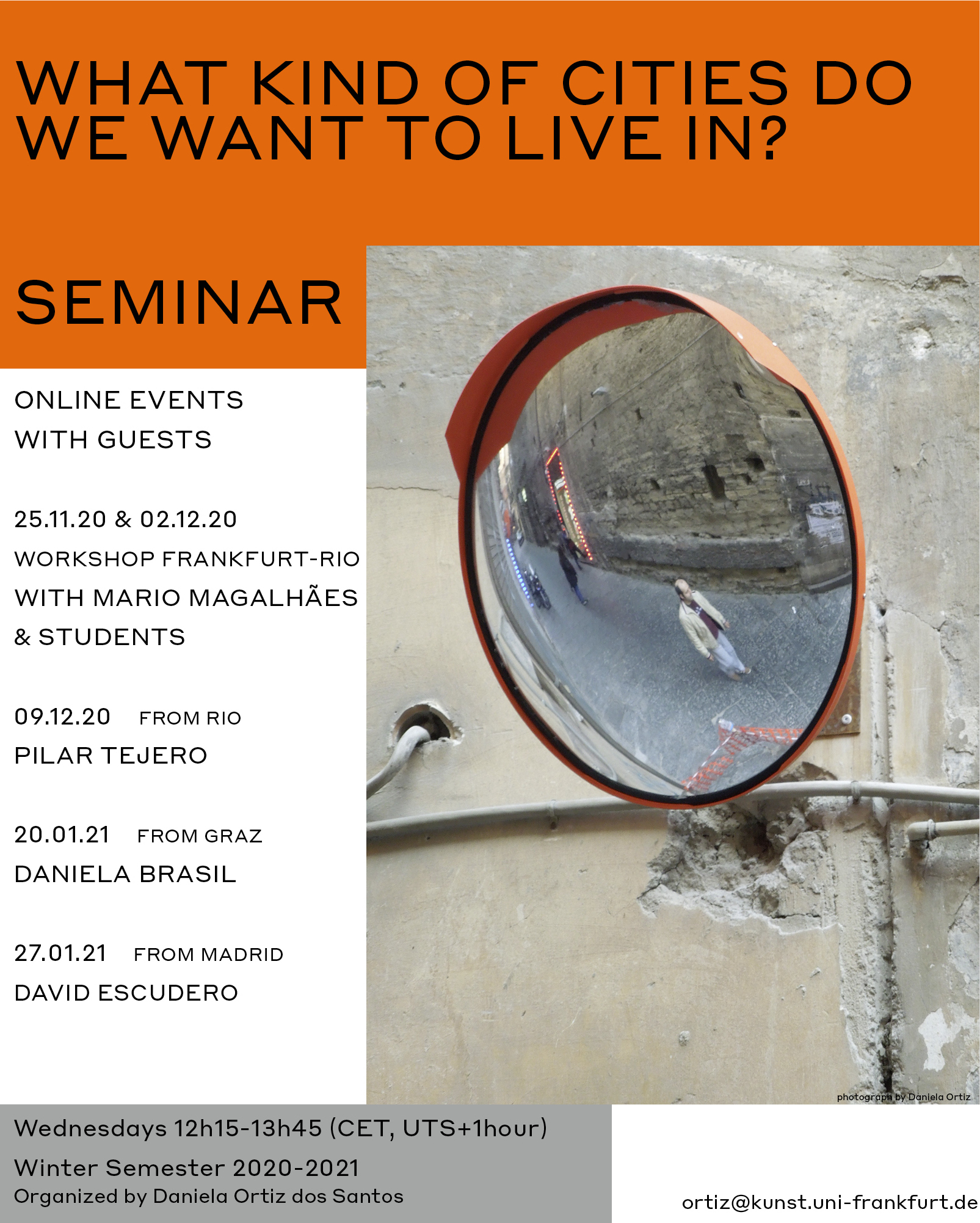Mi 20.01.2021
12h15 (CET)
• online
Vortrag
Notes on the Emancipatory Learning Project
Daniela Brasil
Daniela Brasil is our guest speaker and she discusses an on-going art-based-journey / post-doctoral-action research entitled the Emancipatory Learning Project . It navigates decolonial and post-anthropocentric discourses – while searching for transformative and emancipatory pathways towards the ambitious notion of Earth Citizenship. She is interested in observing how these counter-hegemonic gestures of resistance and/or liberation are empowering and eventually emancipatory. Can they enable more resilient, relational and responsive forms of belonging within a more-than-human world?
Daniela Brasil studied Architecture and Urbanism in Rio de Janeiro, Environmental Urban Design in Lisbon/Barcelona, Social Sculpture in Oxford, and received her MFA and PhD in Artistic Strategies for Public Participation in the Bauhaus-Universität Weimar. She works with socially engaged artistic and pedagogic practices on collaboration, playfulness and radical imagination; she is interested in exercising active citizenship and fostering emancipatory, coalitional learning processes. She has worked as a teacher and researcher in the IZK/ TU Graz from 2011-18. She is an active member of the Daily Rhythms Collective and Neuberg College – Verein für Übersetzung der Gesellschaft; adivisory board of <rotor> centre for contemporary art, and works with the Ecoversities Alliance as well as InRiCo – Indigenous Rights Collective Graz.
The lecture is part of the seminar “What Kind of Cities do we Want to Live in?“ at the Art History Department of the Goethe University Frankfurt. Conceived by Daniela Ortiz dos Santos, the seminar begins with a series of questions and expects to engage a conversation between participants based in very distinct cities: Rio de Janeiro, Graz, Madrid and Frankfurt am Main. Through a virtual format, the sessions explore the various ways of defining, designing, living, exploring, appropriating and embodying the city.
Our efforts are to challenge Eurocentric perspectives, while creating a platform to exchange positions, propositions and histories. It sheds light on new names, records and episodes. It intersects urban and architectural studies with histories of feminism, with anti-colonial histories, with histories of the moving image as well as with cultural studies of displacement and of everyday life.
For further information and attendance please contact please contact Daniela Ortiz dos Santos.
